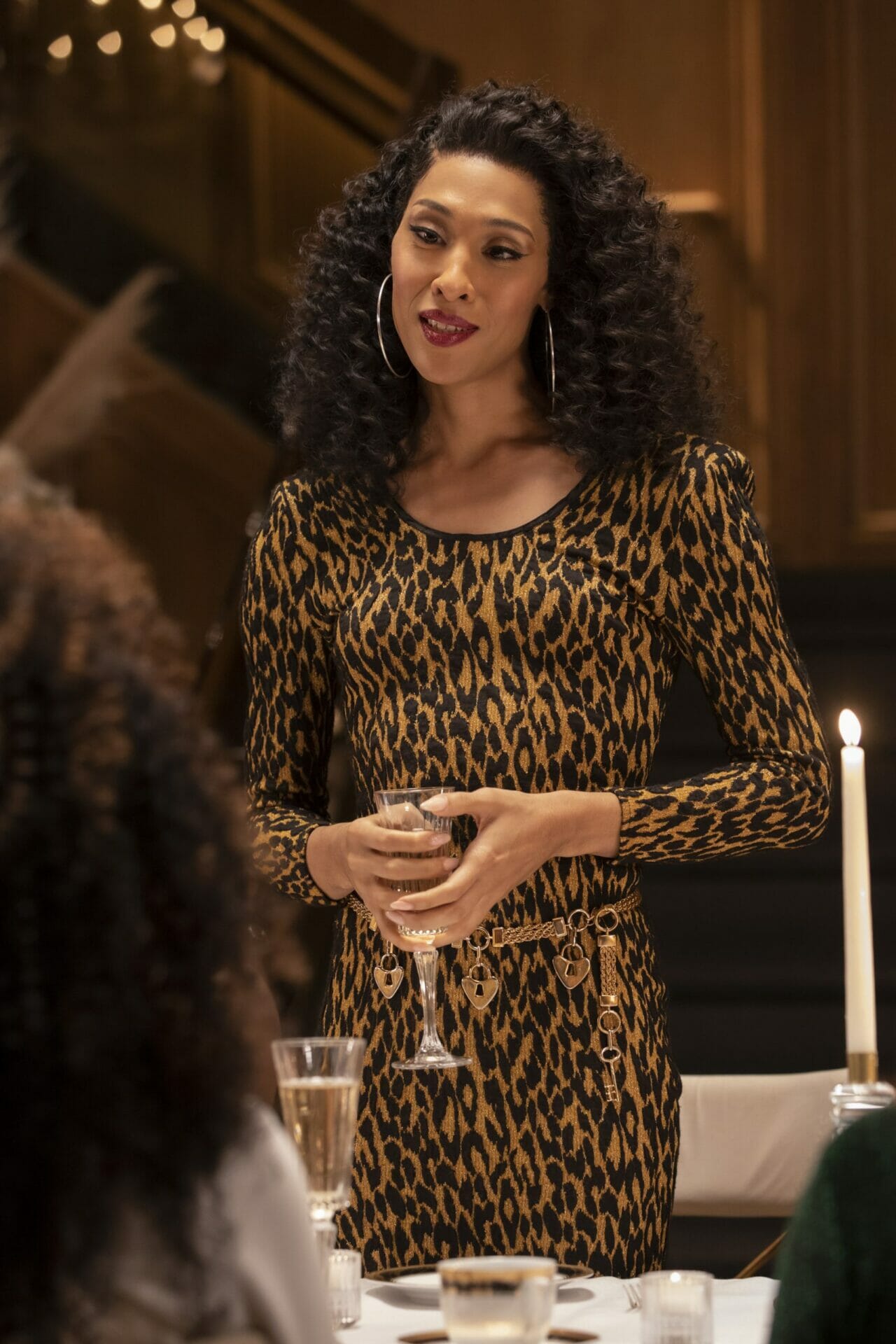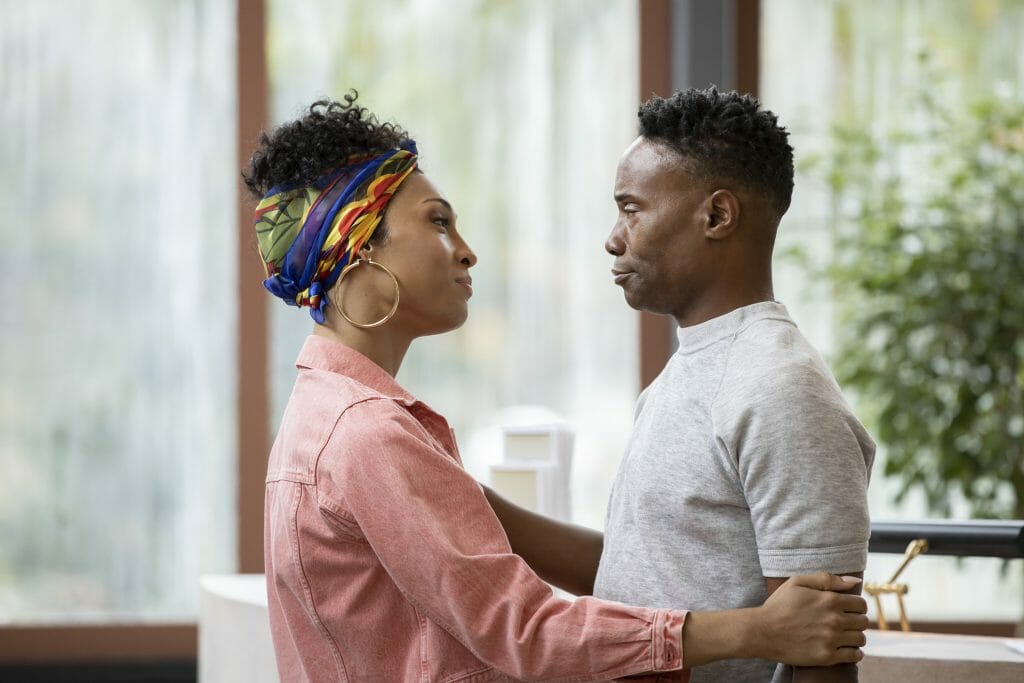Fans of the show are still feeling the impact of the groundbreaking series.
It’s been nearly two months since the Pose series finale aired, and the FX juggernaut continues to live in the hearts of fans and LGBTQ+ community members. Since its 2018 premiere, it has continuously shattered ceilings and broken new ground including a bevy of Emmy nominations and wins.
Prior to its introduction, Pose was touted as making history with the largest transgender cast ever for a scripted series. But beyond this distinction, its episodes have been credited as giving voice and vision to aspects of Black and Latinx queer life that have largely never been given authentic airtime. From anti-trans violence to HIV/AIDS stigma to sex work, Pose has never shied away from controversial dynamics within the community. As well, it’s served up moments of celebration and triumph for its characters that goes beyond their struggles.
Amidst its final season, Pose is up for nine more Emmy nominations including a history-making breakout for Mj Rodriguez, as Outstanding Lead Actress in a Drama Series. As we await the ceremony, let’s journey beyond the thoughts of media insiders to community members who have watched and dissected the show from different lenses.
From leaders of the world’s first transgender cultural district in San Francisco (Jupiter Peraza and Ivory Smith) to experts in psychology (Dr. Kevin Nadal) and queer history (Ahmad Greene-Hayes) , we have compiled a roundtable of LGBTQ+ community leaders of color to discuss the impact of the show and why an Mj win would ring differently.
WHAT POSE MEANS TO ME
Ahmad Greene-Hayes: Pose brings to life the stories of so many Black and brown queer and trans people left for dead, forgotten, and erased in the canon of American history.
Kevin Nadal: Pose was the first show on TV that showed trans and queer Black and Latinx people living their best lives. Seeing this representation made me realize how important having these stories would have been when I was younger. It made me happy to realize that trans and queer kids of color today have images of love, success, happiness, and a future.
Jupiter Peraza: When Pose premiered, I was contemplating transition, and seeing myself reflected in the show gave me the confidence to be authentic. The show is/was such a possibility model for me and my life.
Raffy Regulus: Pose was a conversation starter for my family and me to have healthier conversations about my nonbinary identity. It created a safe space for me.
Ivory Smith: Pose shows us that trans people can be loved, empowered, and seen truly for who we are. It inspired me to live to my full potential. The show proved to me that I and my trans sisters could be the best version of ourselves.
HOW I FELT WATCHING THE FINALE
AGH: The last episode confirmed the urgent need for intergenerational community, passing the torch, and honoring elders, and supporting Black and brown queer and trans youth on their journeys.
JP: When Blanca touches Pray Tell’s hands, and the Diana Ross lyrics say, “If you ever need me, call me,” it just affirms and reminds me that we should always look to our elders and all that they’ve gone through. It was so moving, and I had tears because it reminded me of the importance and the value of my trans and queer community.
RR: It made me feel like I was part of a community whose stories need to be told. Pose is proof that there are so many stories we deserve to have portrayed on TV and in movies.
THE STORY I LOVED THE MOST
AGH: I am haunted by Candy [Ferocity]’s murder and funeral. We have failed Black trans women, and there is still so much work to do. Also, Pray Tell’s coming home episode felt too familiar for comfort. Many Black churches have spoken death over Black queer and trans people. If the Bible is right, that ‘the power of life and death is in the tongue,’ then the blood of queer and trans people is on the church’s hands. Pose shows us that.
KN: From the first episode, Damon’s storyline got me hooked, as a Black queer teen experiencinges violence and ending up on the streets. He meets Blanca, and she gives him a home and the mothering he needs. Later, we learn that most of the characters were violently kicked out of their homes and found new chosen families who helped to uplift them. It makes me wish that every trans or queer kid of color had people to provide them the love and support they need – from both the chosen family they find and the bio families they were born into.
JP: The first season, I related to Angel the most because she was such a young girl coming into her womanhood. In the second season, I related to Elektra’s vulnerability. She was fearless and unafraid of reinventing herself. But in the third season, I related to Blanca’s tenacity and her ability to live in the moment, finding love and finding herself, and self-assuredness in that she was, in fact, lovable.
IS: I related most to Blanca because I’ve always felt the need to bring people together and look out for my sisters and ensure other people’s wellbeing and safety. Blanca puts herself aside and really was a mother figure and caretaker for her chosen family. She was selfless and a true advocate for her community.
WHY POSE WAS SO GROUNDBREAKING
AGH: Pose disrupts this pattern of excluding queer and trans people from a Black and brown radical history. While the show has its issues, it is certainly unlike anything we’ve ever seen before.
KN: Research has found that when LGBTQ people come from supportive environments, they are more likely to develop healthy identities, have more positive self-esteem, and are less likely to have mental health issues. Having positive representation has a similar effect. The earlier that LGBTQ people learn that their identities and experiences are normalized and celebrated, the more they develop the resources they need to protect them against discrimination. Contrarily, when LGBTQ people learn negative messages about LGBTQ people, they may learn to internalize homophobia or transphobia – often hating themselves and engaging in harmful behaviors to cope with their internalized oppression.

JP: The cast being predominantly Black and brown trans people as leading characters on a major TV network, was iconic. The moments showcased started conversations between non-trans and trans people and shattered misconceptions about things like trans-attracted men, vaginoplasty, drug use, the complicated experience of grieving.
RR: For the first time, I witnessed the stories of HIV/AIDS history and lived experiences displayed on TV without centering around cisgender white gay men.
IS: Pose was raw, uncut, and showed the trials we’ve had to navigate as trans people. And it has helped many of us have solid, regular work in the entertainment industry, which is super important for overall diversity in Hollywood. It reclaimed the Ballroom scene, a Black and Brown transgender and queer cultural staple at a time when white people were taking voguing classes and showed the world the importance of giving credit to the people that actually create popular culture. Pose inspired others and the broader community to reclaim pieces of their culture that get taken from them. I can’t help but think of the Black creatives on TikTok and their strike- and how in some ways, Pose was a way to remind America of the origin of all these vernacular expressions and dance moves.
WHAT MJ WINNING THE EMMY FOR BEST ACTRESS WOULD MEAN
KN: For Pose to win at the Emmys and MJ to become the first trans woman to win the Best Actress – would mean that at least one institution recognizes what trans and queer people of color have to offer. We’ve been here since the dawn of time as artists, scholars, leaders, entrepreneurs, and more, but have gone unnoticed for too long. While we don’t need mainstream organizations to validate our existences, we recognize that representation and recognition can make it better for future generations.

JP: MJ winning the Emmy would legitimize her artistry and recognize her incredible talent. It would give license to more opportunities for trans artists to be taken seriously. The benchmarks keep changing for us no matter what we seem to accomplish, and there is a need for institutions to acknowledge the contributions of trans artists to popular culture.
RR: One Emmy can do so much good in the right hands. “Emmy-Award Winning Actress, MJ Rodriguez” has a rather legendary ring to it, and I’m sure the Emmys will want to continue their legacy and impact, by being part of her journey. She’s a true icon.
*This roundtable has been edited for clarity.













